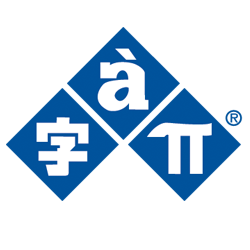October 24, 2023 / by the SimulTrans Team Estimated read time: 4 minutes
Three Key Ingredients for a Successful Translation Project
 Translating your content for an international audience can be daunting, especially if you’re doing it for the first time. You know you need to do a good job adapting your content and messaging the first time around if you want to win international customers. But where should you start?
Translating your content for an international audience can be daunting, especially if you’re doing it for the first time. You know you need to do a good job adapting your content and messaging the first time around if you want to win international customers. But where should you start?
Here are three key ingredients that are critical to the success of every translation project, and – if done correctly – will help you connect with global users and grow your business internationally.
1. The Right People
According to an African proverb, “It takes a village to raise a child", and the same can be said of most translation projects! You need to find the best translation agency that can assemble a highly skilled team of:
- Linguists: Translators, editors, and proofreaders who will ensure that your product, message, and brand are adapted correctly in the target language.
- Engineers: Localizers who will use localization tools to adapt the translated text strings to each country’s standards, ensuring a smooth user experience.
- Desktop Publishers: Formatting specialists who will make the translations fit correctly on each page, adapting images and graphics as needed.
- Testers: Quality assurance testers who will review each translated application and retest the application before launch.
- Project Managers: Coordinators who will ensure your localization project is delivered on time and within budget while resolving issues and keeping you informed of progress.
2. The Right Processes
A localization project involves many steps, with multiple phases to manage and stakeholders to update. Selecting a professional translation company that has a proven localization process is essential to a successful outcome.
- Software: Deploying a project management workflow tool to ensure that your translation project moves seamlessly from one phase to the next while staying on track is paramount.
- Certifications: Choosing an ISO-certified translation service provider ensures the company adheres to industry-recognized quality management standards and follows quality-oriented processes and best practices.
3. The Right Technology
The best translation firms know how and when to deploy the latest localization management tools and technology to offer a better service to their clients. Sophisticated tools can accelerate timelines, improve quality, and reduce costs.
- AI Translation: Deploying neural machine translation (NMT) technology with post-editing by professional human translators as part of the translation process can be a fast and cost-effective option for translating large-scale projects.
- Translation Memory: Creating a translation memory (TM) allows previous translations to be re-used, thereby avoiding repeat work and improving consistency across projects.
- Connectors: Integrating your content management system (CMS) or marketing platform with your translation partner’s translation management system (TMS) enables content to be exported for translation and then imported back once translated.
So, now that you know what key ingredients are needed, how do you put the pieces together? You could make a list of translation companies in the USA and review them all one by one, but that would be extremely time-consuming! Or, you could select an experienced language service provider (LSP) like SimulTrans that ticks all the boxes. We’ll become your translation partner, advise you on best translation practices, and of course, deliver a complete translation solution that saves you time, money, and hassle.
Ready to take the first step on your localization journey? Let SimulTrans be your guide.
Topics: Localization Technology, Translation Best Practices, Software Localization, Article, Business Strategy

Written by the SimulTrans Team
The SimulTrans team has been providing localization solutions for international businesses since 1984. Our team is a diverse, engaged, multinational group of industry-expert translators, reviewers, project managers, and localization engineers. Each team member is devoted to collaborating, locally and globally, to maintain and expand SimulTrans’ leadership in the language services sector.



